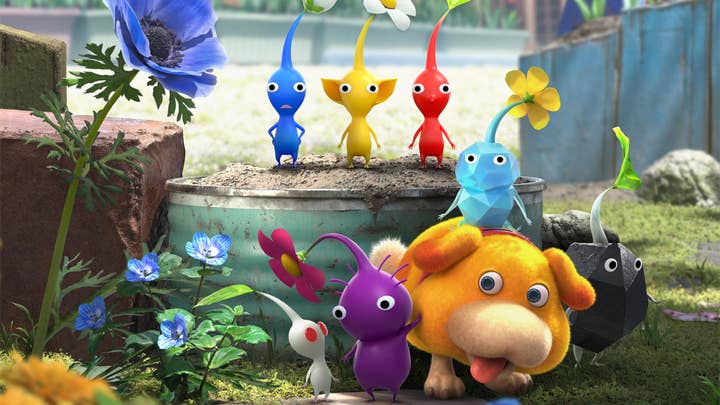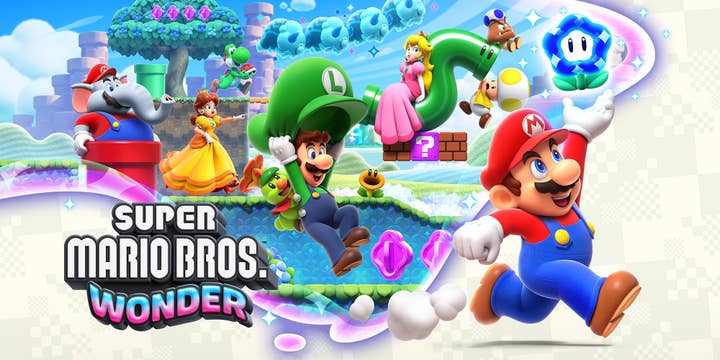Nintendo Direct introduces the Switch's "sunset slate" | Opinion
A focus on remasters and remakes was a fan-pleasing move – but it's increasingly obvious that Switch software is in a holding pattern as we wait for a hardware refresh
Nintendo Direct broadcasts have become something of a fixture of the industry.
They're now the company's default way of sharing news about upcoming software and its development schedule, and unusually for a company which has such a reputation for playing its cards close to its chest, this means that in many ways Nintendo is the most open and transparent of the platform holders regarding its software pipeline.
This week's Nintendo Direct was no exception, giving us clarity on a lot of the release schedule for Switch in the coming year or so.
That transparency can only go so far, though, and the challenge for Nintendo Direct's format right now is the same as the challenge for Nintendo more broadly – how do you communicate with players about the software pipeline when, behind the scenes, more and more of that pipeline is being diverted towards a console you haven't started talking about yet?
To be clear, Nintendo finds itself with a very high-quality problem here. It's just launched Tears of the Kingdom to commercial success and rave reviews – the game is selling gangbusters and will be one of the most-played and most-discussed games of 2023. The company couldn't have hoped for a bigger exclusive title to keep the Switch afloat through what is likely its last major year on the market.
But at the same time, the launch of TotK raises the next question, which is the far thornier matter of how the transition to the company's next hardware platform is to be managed.
Part of the reason why speculation on that front will be intense is because we really don't know what Nintendo actually plans to do with its Switch follow-up; we just know it's something that has to happen fairly soon, or risk losing the momentum behind the existing platform entirely.
There's decent evidence to suggest that plans have changed over the years. At one point, pre-pandemic, Nintendo was clearly considering launching an iterative upgrade (the so-called "Switch Pro") that would have extended the platform's lifespan without replacing it entirely. That's almost certainly no longer realistic, since any modern update to the hardware at this point (six years on from the original launch) would be a replacement rather than an iteration almost by default – the performance difference would be so significant that forcing developers to continue supporting the original spec would be immensely restrictive.
The launch of TotK raises the next question, which is the far thornier matter of how the transition to the company's next hardware platform is to be managed
If there's any company that could plug its ears to the resulting developer outcry and push ahead with such a demand, it's Nintendo, but it still seems much more likely that whatever hardware is announced next will be a full generational leap rather than anything like a "Switch Pro" upgrade.
Beyond that, the shape of what's to come is largely unknown. A significant upgrade that maintained the Switch form factor and basic concept is certainly possible, and with any other company, that's exactly what you'd expect. This being Nintendo, though, a fairly significant departure that introduces major innovations over the existing Switch concept is also very much on the cards.
We'll see what the company has planned sooner rather than later, you'd imagine. With TotK safely out the door and no risk of sales cannibalisation remaining, Nintendo will probably start talking about its new hardware over the summer, or by autumn at the latest.
Talking about new hardware, though, is easy. Talking about what that's doing to your software pipeline – that's hard. The catch, of course, is that the original Switch is still doing very well – and that there are tens of millions of consumers who just bought the hardware in the past couple of years, so for them, it's a pretty new platform.
Handling these transitions is always a major challenge for a platform holder – you want people excited about a new platform, but you also don't want to leave your existing installed base feeling abandoned, or make relatively new owners feel like they just paid good money for something that's already obsolete. The complexity of managing that balance is compounded by the scarcity of development resources; every resource that goes into creating software for the existing platform is a resource that's not building software for the new system you're going to be trying to sell in a few short months.
Nintendo's strategy for squaring that circle – at least in the coming months, with early details of the Switch's eventual replacement likely to appear before the end of the year – seems to rest very heavily on remakes and re-releases, not just of its own titles but also of back catalogue titles from across the industry.

It's an interesting approach – not entirely original, of course, but certainly being done rather differently by Nintendo than by other firms in the past. A focus on older titles arguably plays nicely into the key advantage of the Switch while also bypassing its weak points. For remasters and remakes, the outdated hardware becomes much less of an issue, while the smaller screen of the handheld device will also make the graphics of older games look great.
Nintendo may well have been casting an eye over the consumer engagement with Valve's Steam Deck, which has, for many of its users, become a device for retro and back catalogue games in a similar manner. It makes sense for Nintendo to focus on this aspect of its catalogue, especially since work on these games can be relatively safely handed off to smaller and less experienced development teams, leaving its biggest core teams to focus on titles for a next-gen device.
Talking about new hardware is easy. Talking about what that's doing to your software pipeline – that's hard. The catch is that the original Switch is still doing very well
Will this be enough to keep consumers happy while they wait to see a new Nintendo console – and with it, a new slate of larger-scale exclusives? It's not without precedent. Microsoft successfully did something similar with the Xbox Series X|S consoles, leaning heavily into backwards compatibility and back catalogue availability on Game Pass for the early years of the new systems – although one downside to that precedent is that there's a pretty strong argument that Microsoft overplayed that part of its hand, leaning on back catalogue for so long that it started to sap goodwill for the platform (a situation that still persists to some extent right now).
It's also worth noting that in fairly typical Nintendo style, the company doesn't seem to have a value proposition in mind – pricing information for the various remakes and re-releases highlighted in the Nintendo Direct broadcast has started to filter out, and suffice it to say that these price tags would have your average Game Pass subscriber calling for their fainting couch and smelling salts.
On the other hand, Nintendo is also arguably in a stronger position from which to attempt this move, since the Switch already has a generation's worth of excellent games in its catalogue – unlike the newly launched (at the time) Xbox Series devices, which were relying on back catalogue to fill a much more problematic gap.
It's also not like everything in this week's Direct was a remake or remaster; there are also a decent set of high-quality indie titles, DLC for major existing titles, and of course, Pikmin 4 is in the works as well, which should help to deflect criticism that the slate is too obviously a "sunset slate" for the Switch.
Nonetheless, it doesn't seem unfair to assume that major Nintendo games we've seen announced but that have gone quiet are most likely being shifted to new hardware at this point. It's also instructive to start counting the teams and studios that aren't officially working on anything right now – although that's trickier for Nintendo than for many other companies, since it's not always very forthcoming about its internal development structure.
It doesn't seem unfair to assume that major Nintendo games that have gone quiet are most likely being shifted to new hardware
Still, you can look at the biggest Switch games of the past few years, ask what those teams are working on now, and the answer for almost all of them is "we don't know" – which probably means they've moved to next-generation development.
None of this is a surprise – it's fairly standard stuff for any company approaching a console's end of life – but it's interesting to observe what Nintendo is doing here and how it's handling the transition, not just as an exercise in reading tea leaves about the Switch successor, but also as an exercise in figuring out how that transition will go.
Nintendo's track record isn't great here; it has previously dropped the ball at console transitions, going from fantastically successful consoles to flops in a single generation. It will be working very hard to avoid those mistakes with Switch. That makes it worth watching every clue to see how exactly that strategy is being constructed.
Sign up for the GI Daily here to get the biggest news straight to your inbox

